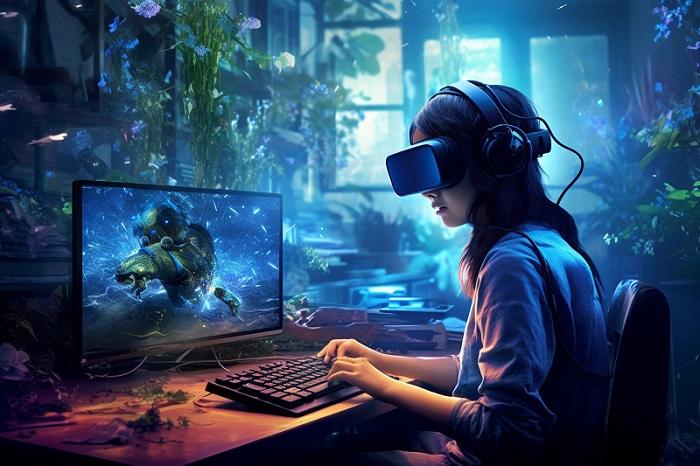AI in Games Market Overview:
The integration of Artificial Intelligence (AI) in the gaming industry has revolutionized how games are developed, played, and experienced. The AI In Games Market is characterized by the use of algorithms and machine learning techniques to enhance gameplay, improve player engagement, and create more realistic environments. The global AI in games market is witnessing significant growth, driven by advancements in technology and increasing demand for immersive gaming experiences. The market is projected to reach a valuation of several billion dollars over the next few years, with a compound annual growth rate (CAGR) that reflects the rapid adoption of AI technologies across various gaming platforms.
Market Key Players:
Several key players dominate the AI in games market, including major game development studios and technology companies that specialize in AI solutions. Notable companies include Electronic Arts (EA), Activision Blizzard, Ubisoft, and Epic Games. These organizations leverage AI to enhance non-player character (NPC) behavior, optimize game design processes, and personalize user experiences. Additionally, tech giants such as Google and Microsoft are also making strides in this space by providing cloud-based AI services that can be integrated into game development workflows. The competitive landscape is further enriched by emerging startups focused on niche applications of AI within gaming.
Download Free Exclusive Sample PDF:
https://www.marketresearchfuture.com/sample_request/22334
Market Segmentation:
The AI in games market can be segmented based on various criteria such as technology type, application area, platform type, and region. In terms of technology type, segments include machine learning algorithms, natural language processing (NLP), computer vision, and others. Application areas encompass game development tools, player analytics, NPC behavior enhancement, and content generation. Platform-wise segmentation includes mobile gaming, console gaming, PC gaming, and virtual reality (VR) platforms. Each segment presents unique opportunities for growth as developers seek innovative ways to incorporate AI into their products.
Market Drivers:
Several factors drive the growth of the AI in games market. Firstly, the increasing demand for personalized gaming experiences encourages developers to utilize AI for tailoring content to individual player preferences. Secondly, advancements in machine learning technologies enable more sophisticated NPC behaviors and adaptive difficulty levels that enhance player engagement. Furthermore, the rise of online multiplayer games necessitates robust server-side AI solutions for managing large volumes of data related to player interactions and behaviors. Lastly, the growing popularity of VR and augmented reality (AR) experiences fuels interest in creating more immersive environments powered by intelligent systems.
Market Opportunities:
The evolving landscape of the gaming industry presents numerous opportunities for leveraging AI technologies. One significant opportunity lies in enhancing game testing processes through automated testing frameworks powered by AI algorithms that can identify bugs or performance issues more efficiently than traditional methods. Additionally, there is potential for developing new genres of games that utilize procedural generation techniques driven by AI to create unique gameplay experiences each time a game is played. Moreover, partnerships between game developers and tech companies specializing in artificial intelligence could lead to innovative solutions that push creative boundaries within interactive entertainment.
Regional Analysis:
Geographically speaking, North America holds a substantial share of the global AI in games market due to its established presence of leading game developers and technology firms. The region’s strong investment climate fosters innovation while attracting talent from around the world. Europe follows closely behind with a vibrant gaming community supported by government initiatives promoting digital innovation within member states. Meanwhile, Asia-Pacific is emerging as a key player driven by rapidly growing mobile gaming markets coupled with increasing internet penetration rates across countries like China and India where mobile devices serve as primary platforms for accessing games.
Get Complete Report Details:
https://www.marketresearchfuture.com/reports/ai-in-games-market-22334
Industry Updates:
Recent developments indicate an accelerating trend towards integrating advanced artificial intelligence capabilities into mainstream video games. For instance, several high-profile titles have begun incorporating deep learning techniques to enhance graphics rendering or improve NPC interactions significantly compared to previous generations’ standards—leading gamers toward richer narratives filled with dynamic character arcs influenced directly by player choices throughout gameplay sessions rather than relying solely on pre-scripted events alone! Additionally noteworthy are collaborations between academic institutions researching cutting-edge methodologies applicable within this domain alongside commercial entities seeking practical implementations—further solidifying academia-industry partnerships aimed at pushing forward both theoretical understanding & practical applications alike!
Top Trending Reports:
